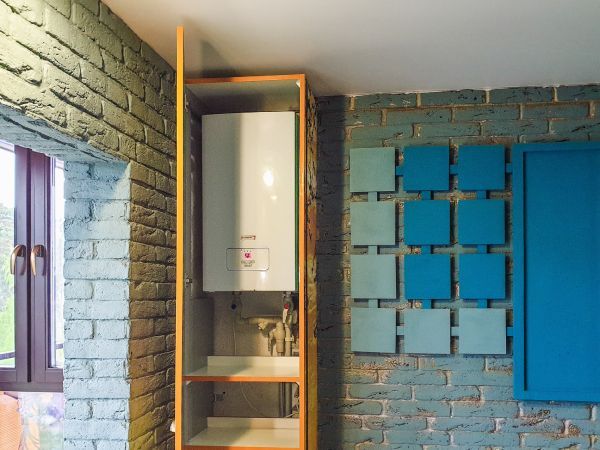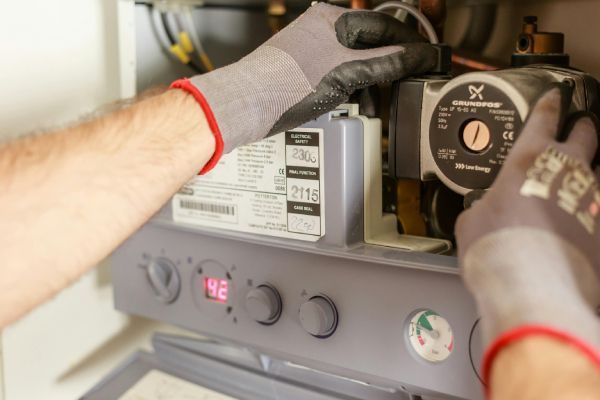Master Plumbers Blog
Choosing Between Tank ad Tankless Water Heating Systems for Your Home
Imagine stepping into a perfectly warm shower on a crisp Dunedin morning—or perhaps you've experienced the unwelcome chill of a sudden cold burst? Your water heater makes all the difference. While the comfort of readily available hot water is undeniable, the methods of achieving it have changed through the years. Today, homeowners are faced with the choice between traditional tank systems and innovative tankless models.
Navigating these options can be tricky, which is where trusted Dunedin plumbing services offered by Mains Plumbers can provide invaluable guidance. With over 75 years of experience, we're dedicated to helping residents find the most efficient and cost-effective solutions for their needs.
If you find yourself in a similar situation, keep reading. This guide will equip you with the knowledge you need to choose the water heating system that best suits your lifestyle and budget.
How Tank and Tankless Water Heaters Work
The daily rhythm of your household depends heavily on a reliable hot water supply. From morning showers to evening dishwashing, hot water is a constant need. Thus, your choice of water heater can impact your comfort, energy consumption, and even your home's layout? While both tank and tankless systems provide hot water, they function differently.
Stepping into a shower and experiencing the water turning lukewarm halfway through is characteristic of homes using traditional tank water heaters. These systems employ a reservoir, typically holding between 135 and 300 litres, ensuring hot water is always on standby. Once that reserve is depleted, you'll have to wait while the tank refills and reheats the water.
Tankless water heaters, on the other hand, work like an instant hot water tap. Instead of storing hot water, they use high-powered burners or electric elements to rapidly warm the water as it flows through the unit. This eliminates standby energy loss and allows for a continuous supply of hot water—as long as the unit’s flow rate meets household demand.
Pros and Cons: Which System Suits Your Needs?
Selecting the right water heater, whether tank or tankless, is about more than just technology; it's about finding the perfect fit for your home. Because each system has distinct advantages and potential drawbacks, it’s important to consider how they align with your household’s needs. Below are the key factors to weigh in your decision:
Energy Efficiency
Often, tankless water heaters are the more energy-efficient option because they only heat water when needed. Unlike storage tanks, which maintain a constant supply of hot water, tankless models eliminate standby heat loss and can reduce energy consumption by up to 30%, depending on usage.
Space Requirements
For smaller homes or apartments, a tankless system can be a game-changer. These units are compact—about the size of a small suitcase—and can be mounted on a wall, freeing up valuable floor space. In contrast, a storage tank requires a dedicated area, often taking up space in a cupboard, basement, or garage.
Hot Water Demand
A tankless system provides continuous hot water, making it ideal for households where multiple people shower at different times of the day. However, if several taps and appliances require hot water simultaneously, a tankless unit may struggle to keep up with demand. In this case, a storage tank system, which can supply a large volume at once, might be the better option.
Household Size
Your family size plays a big role in determining the best water heater. A large family with high water usage may benefit from a bigger storage tank to ensure enough hot water is available when needed. On the other hand, a smaller household—or one where hot water usage is more spread out—could benefit from a tankless system’s efficiency and space-saving design. Ultimately, the ideal system depends on a careful assessment of your household's unique water usage patterns.
Upfront vs. Long-Term Costs
Tankless water heaters come with a higher initial price tag, as they usually require plumbing upgrades and enhanced gas or electrical systems. However, their 20+-year lifespan and energy efficiency can lead to lower utility bills over time. In contrast, storage tank systems are more affordable to install, making them a budget-friendly option for immediate needs. That said, their shorter lifespan (10-15 years) and higher energy consumption may result in increased costs in the long term.
Installation and Maintenance Considerations
Beyond performance, installation and maintenance also play a significant role when deciding between a tank and a tankless water heater. While both systems require professional expertise, the complexity of the work varies.
Installation Requirements
Installing a storage tank water heater is often simpler, as it primarily involves connecting to existing water lines and venting. Tankless water heaters, however, necessitate more extensive work, especially when switching from a tank system. These installations may require upgraded gas lines or electrical wiring to support the high-powered heating elements. This makes professional plumbing or gas fitting necessary, as improper connections can lead to inefficiencies, safety hazards, and even regulatory non-compliance.
Ongoing Maintenance
Regular maintenance is essential for both types of water heater systems, although their requirements differ.
Storage tank water heaters need periodic flushing to prevent sediment buildup, which can compromise efficiency and reduce their lifespan. Meanwhile, tankless water heaters require descaling—a process of removing mineral deposits from the heat exchanger—to address mineral deposits, which is especially critical in regions with hard water.
Ultimately, whether you opt for a tank or tankless water heater, proper installation and consistent maintenance are vital for ensuring optimal performance and longevity.
There’s no one-size-fits-all solution when it comes to the right water heater, as the best choice depends on your lifestyle, budget, and household needs. Consider the points discussed here to help you make an informed decision.
If you're still unsure which system is best for you, Mains Plumber is here to help. We can guide you through the selection process and provide professional installation for a system that meets your needs.
Contact us today for expert advice and quality service you can trust.







